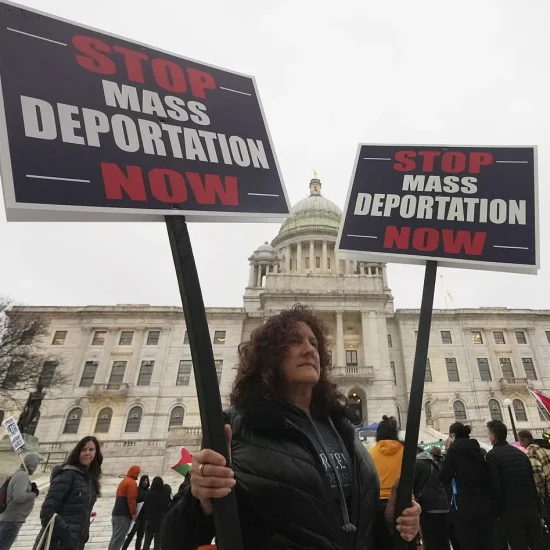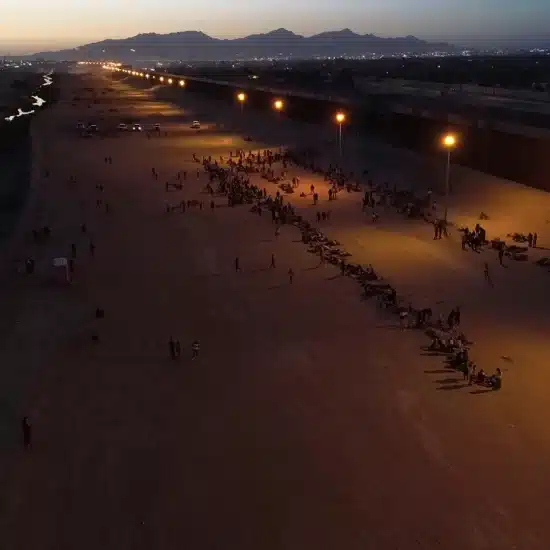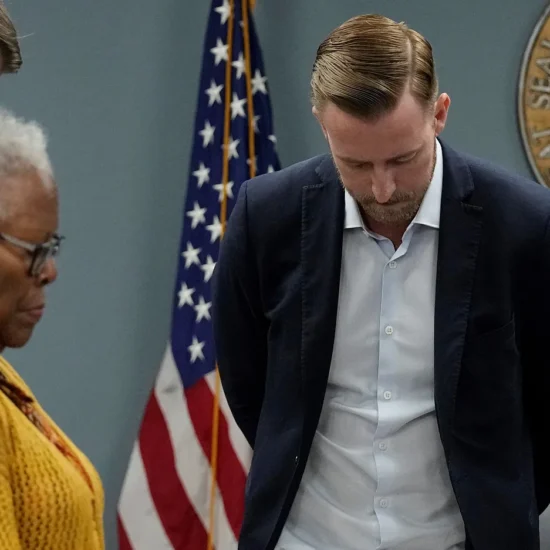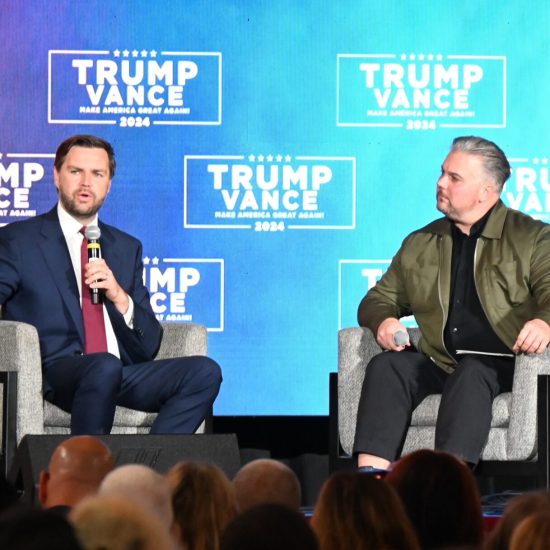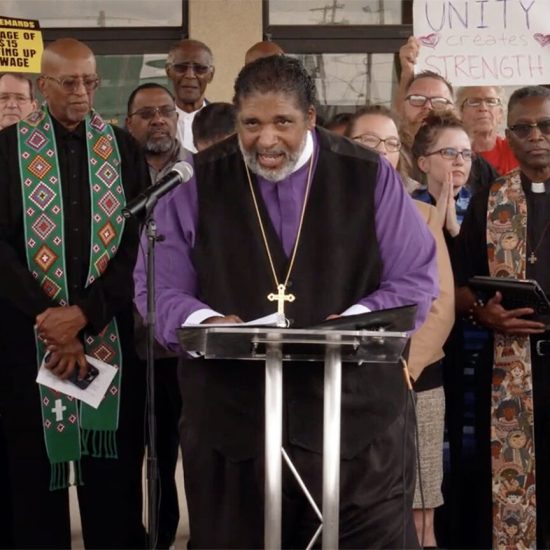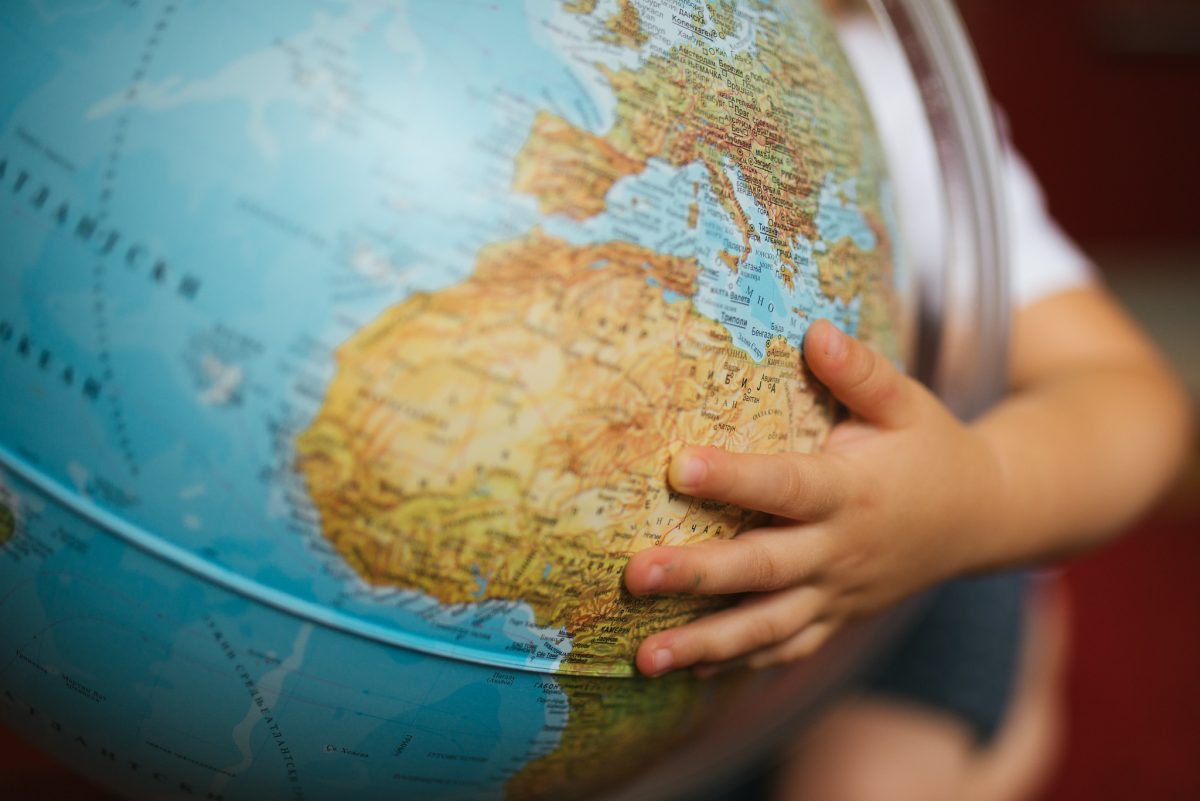
(RNS) — On Election Days, I’m reminded of the days I sat crisscross applesauce on the floor in Sunday school as our elderly and beloved teacher, “Brother Wilson,” led us in a song about God’s sovereignty:
“He’s got the whooole world in his hands!
He’s got the whooole world in his hands!”

(Nenad Stojkovic/Creative Commons)
Election night summons that refrain for me because, on that night, many Christians like to post some version of, “No matter the results tonight, God is still on the throne.”
The voting process aside, these Christians like to fall back on the idea that “there are no authorities except the ones God has chosen,” as the Apostle Paul wrote in his letter to the Romans. The sentiment is supposed to help with the nail-biting. For others, it’s a godly sounding way of saying “shut up and accept the results.” Either way, it justifies inaction on the grounds that God is in control.
I connect this platitude and the old Sunday school song, at any rate, because both are problematic, especially for persecuted minority groups. As faithful as they sound, they gently erase human agency in history, and make us feel less accountable.
With the stakes as high as they are this election season, we can’t afford to operate under the illusion that God writes history alone.
The notion that God is on the throne is no reason for all of us living in America’s caste system to breathe a sigh of relief. It should invoke dread in the hearts of oppressors, awe in the hearts of the powerful, and courageous hope in the hearts of the oppressed. It should inspire responsible social leadership, politics of neighborly love and revolutionary action.
Managing the affairs of planet Earth may well be a bullet somewhere in God’s job description. God is the “King of Kings,” and, after all, kings rule. But in the Jewish and Christian Scriptures, God delegated authority to human beings to govern what happens on this planet.
“Rule over the fish in the sea and the birds in the sky and over every living creature that moves on the ground,” God says to the first humans, according to the Book of Genesis.
The psalmist writes, “What is man that you are mindful of him? … You make him to rule over the works of Your hands; You have put all things under his feet.”
This means that humans are called to participate directly in making history. Looking carefully at the events of this year alone, we can trace the severity of the COVID-19 pandemic, the shift in public sentiment about policing in the U.S., and the dead-heat presidential race to human decisions. This doesn’t mean God has no place in current events, but that God has made a place for us to shape them.
God’s frustration in the Hebrew psalms and prophets at the social injustices in ancient Israel is anchored in the notion that humans have been deputized to rule the world and are accountable to do so.
“God takes his place among the gods,” the psalmist writes, envisioning YHWH crashing a meeting of ancient Israelite governing officials in Psalm 82.
“How long will you judge unjustly by granting favor to the wicked,” God asks them in Psalm 82, “Give justice to the lowly and the orphan; maintain the right of the poor and the destitute! Rescue the lowly and the needy. Deliver them from the power of the wicked!”
The psalmist’s message is not “God is on the throne, now whatever the government says is divinely endorsed.” The message to the powerful is “God is on the throne; act like it!”
It’s worth noting that in the psalm above, God expects those who govern to implement policies of neighborly love to society’s marginalized, something contemporary Christians have been claiming the government has no obligation to do. A Missouri voter told CNN she didn’t elect him to be America’s pastor, but president.
According to the Bible, however, God seems to expect officials to deliver the lowly and needy “from the power of the wicked.” This must have some implications for the women who allegedly suffered nonconsensual hysterectomies in U.S. detention facilities, for law enforcement policies that take a pass on prosecuting anyone for the horrific killing of Breonna Taylor, or for those managing the global pandemic in the interest of a few billionaires.
In the Book of Exodus, God tells the newly freed Israelites: “Do not mistreat an alien or oppress him, for you were aliens in Egypt. Do not take advantage of a widow or an orphan. If you do and they cry out to me, I will certainly hear their cry. My anger will be aroused.”
If that God is on the throne, the powerful should tremble at the thought of dismissing or mistreating vulnerable communities. And if that God is on the throne, the oppressed can feel emboldened to stand up to the powerful, knowing that God is on their side.
When Hebrew prophets went up against corrupt kings about their crimes, it was because they believed God is on the throne. These harbingers should remind Christians that when leaders abuse their power or neglect the marginalized, God calls prophets to confront them: just as Moses confronted Pharaoh, and Elijah confronted Ahab and Jezebel, and Jesus confronted the religious leaders of his day.
The next time you hear a Christian say things like “No matter who is president, Jesus is king,” remind them of the words of Teresa of Avila: “Christ has no body now but yours. No hands, no feet on earth but yours. Yours are the eyes through which he looks compassion on this world. Yours are the feet with which he walks to do good. Yours are the hands through which he blesses all the world.”
Or remind them of the passage from the Book of Amos, where YHWH admits that God does nothing without inviting human participation. In America, we imagine that participation as civil resistance, and people are already in the streets showing that they will resist an aspiring despot who tries to claim victory in an election that isn’t his.
Saying “God is on the throne” might make some Christians feel better. But it’s not an excuse to disengage. The decisions we make shape the future of nations, even if our decision is to do nothing.
After all, God put the whooole world in our hands.
Andre Henry is program manager for the Racial Justice Institute at Christians for Social Action. He has a Master of Arts in theology, with an emphasis in biblical languages from Fuller Theological Seminary.


